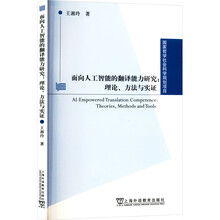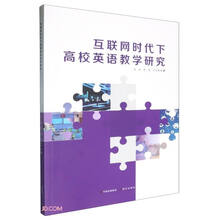Chapter 1 Introduction
1.1 Statement of the problem
1.2 Objectives of the study
1.3 Significance of the Study
1.4 Outline of the study
Chapter 2 Literature Review
2.1 Introduction
2.2 Second language reading
2.2.1 The nature of reading
2.2.1.1 Purposes for reading
2.2.1.2 Models of Reading
2.2.2 Issues in L2 reading
2.2.2.1 Language proficiency and L2 reading
2.2.2.2 Amount of exposure to L2 reading
2.2.2.3 Motivations for L2 reading
2.2.2.4 L2 reading instruction
2.3 Metacognition
2.3.1 Metacogntition vs. cognition
2.3.2 Metacognitive knowledge
2.3.3 Metacognitive strategies
2.4 Metacognition and L2 reading comprehension
2.5 Metacognition and self-regulated reading
2.6 Metacognitive strategy training in reading
2.6.1 Studies on metacognitive strategy training in reading
2.6.2 Strategy training models
2.7 Summary of the chapter
Chapter 3 Research Design
3.1 Introduction
3.2 Research design of the descriptive study
3.2.1 Questionnaire survey
3.2.1.1 Subjects
3.2.1.2 Questionnaire construction
3.2.1.3 Data collection and analysis
3.2.2 Think-aloud Protocol
3.2.2.1 Objectives
3.2.2.2 Subjects
3.2.2.3 Instruments
3.2.2.4 Procedure of think-aloud protocol
3.2.2.5 Data collection and analysis
3.3 Research design of the quasi-experimental study
3.3.1 Objectives
3.3.2 The pilot study
3.3.2.1 Procedure of the pilot study
3.3.2.2 Results of the pilot study
3.3.2.3 Noteworthy points for the strategy instruction
3.3.3 Strategy instruction in the reading classroom
3.3.3.1 Background of the reading course
3.3.3.2 Instruction procedure
3.3.3.3 Data collection and analysis
3.4 Summary of the chapter
Chapter 4 Results and Discussions of the Descriptive Study (1): Questionnaire Survey
4.1 Introduction
4.2 Overall pattern of the use of metacognitive strategies
4.3 Inter-group differences in the use of metacognitive strategies
4.4 Most and least frequently used individual strategies
4.5 Correlation between strategy use and reading proficiency
4.6 Summary of the chapter
Chapter 5 Results and Discussions of the Descriptive Study (2): Think-Aloud Protocol
5.1 Introduction
5.2 Two-level framework of metacognitive strategies
5.3 Differences between skilled and unskilled readers
5.3.1 Difference in metacognitive strategy uses
5.3.2 Difference in the orchestration of strategies
5.4 Reasons for different strategy uses
5.4.1 Language proficiency
5.4.2 Motivational factors in reading
5.4.3 Instructional factors
5.5 Correlation between strategy use and reading performance
5.5.1 Metacognitive strategies and reading performance
5.5.2 Comprehension monitoring strategies and reading performance
5.6 Summary of the chapter
Chapter 6 Results and Discussions of the Quasi-Experimental Study
6.1 Introduction
6.2 Effects of strategy training on metacognitive strategy use
6.3 Effects of the strategy training on reading performance
6.4 Effects of strategy training on self-regulated reading
6.4.1 Planning and self-regulated reading
6.4.2 Selective attention and self-regulated reading
6.4.3 Monitoring and self-regulated reading
6.4.4 Evaluation and self-regulated reading
6.5 Summary of the chapter
Chapter 7 Conclusion
7.1 Introduction
7.2 Major findings
7.2.1 Metacognitive strategies in EFL reading 131
7.2.2 Metacognitive strategies and comprehension monitoring strategies in reading comprehension
7.2.3 Metacognitive strategy training and metacognitive strategy use
7.2.4 Metacognitive strategy training and reading proficiency
7.2.5 Metacognitive strategy training and self-regulated reading
7.3 Implications of the study
7.3.1 Theoretical implications
7.3.2 Methodological implications
7.3.3 Pedagogical implications
7.4 Limitations of the study
7.5 Suggestions for Future Research
Bibliography
Appendix Ⅰ: Questionnaire for Strategy Survey
Appendix Ⅱ: Think-aloud Protocol Reading Task
Appendix Ⅲ: Transcription of a Think-aloud Report
Appendix Ⅳ: Survey of Reading Strategies
Appendix Ⅴ: Modified Questionnaire for Strategy Training
Appendix Ⅵ: Pre-training Reading Test
Appendix Ⅶ: Post-training Reading Test 1
Appendix Ⅷ: Post-training Reading Test 2
Appendix Ⅸ: Weekly Reading Journal Sample
Acknowledgements
展开










